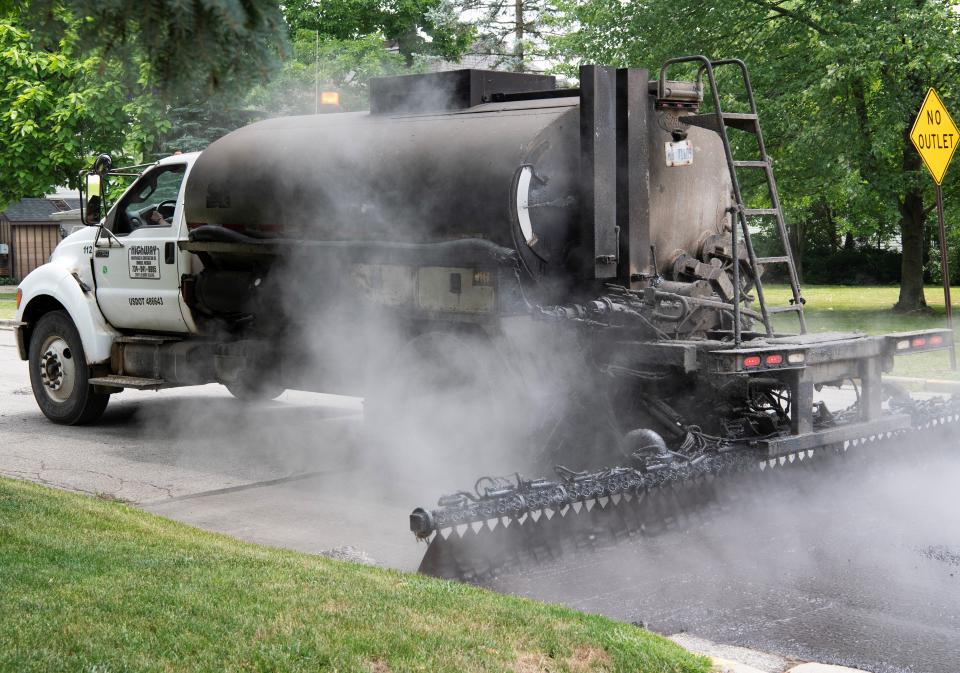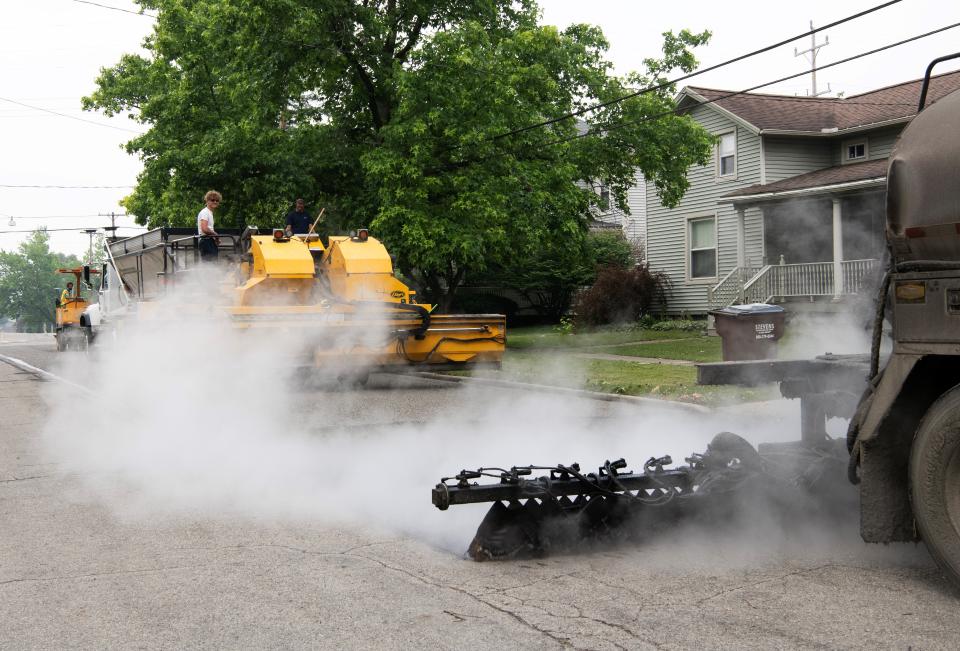Adrian's local street millage is set to expire in 2025; city officials discuss next steps
ADRIAN — Adrian’s current and local street millage, which has been in place since 2016 when city residents voted for its approval, is set to expire in 2025.
The street millage, and its potential renewal before voters of the city, will continue to upgrade and maintain Adrian’s local street system.
City officials discussed the impact of the funding generated through the street millage during a meeting earlier this month. Matt Tomaszewski, director of Adrian’s Engineering Services Department, led the discussion with Adrian’s City Commission and talked about the history of the millage as well as how much is generated annually.
The millage provides Adrian with about $370,000 yearly, he said. An additional $80,000 is earned to Adrian through the Metro Act, which comes from telecommunications companies operating in the city limits who pay the city for utilizing the rights-of-way.

Adrian voters approved a local street millage in 1996, 2006 and 2016. Each of the approvals were for 10-year increments. With the passing of the millage in 2016, more than $7 million has been invested in 21.7 of Adrian’s 42.71 miles of local streets, Tomaszewski said.
“We’ve had a lot of progress made on our local streets, but a lot of work still needs to be done,” he told the city commission. “...The current funding that we get from the state is not adequate enough to fund the maintenance that we need for our streets.”
If approved again by voters, Adrian’s local street millage will be in place from 2026 to 2035.
While it has been practiced in past years to have the levy extend for a period of 10 years, attorney Fred Lucas, who filled in at the city’s meeting in place of Burke Castleberry, said a 10-year millage is somewhat unusual and that most municipalities issue millages for no more than four years.
The present plan is to place the millage renewal in front of Adrian’s voters for the Nov. 5, 2024, election.
The city needs to have its ballot language completed and submitted by the end of August to have the measure appear on the November ballot. The millage doesn’t expire until the end of 2025, but for budgetary purposes, the city wants the millage request for this November to know if that funding will be available in 2026, Adrian City Administrator Greg Elliott explained.

The proposed ballot language reads as follows: “Shall the Charter of the city of Adrian be amended for purposes of paying the costs of public improvements, including local street improvement, to authorize the levy and collection of 1 mill ($1 per $1,000 of taxable value) per year for ten (10) years, beginning in 2026, replacing the current millage. If approved, it is estimated that 1 mill would raise approximately $400,000 annually.”
If approved, a house valued at $50,000 will expect to pay $25 per year for the millage. A house valued at $200,000 will pay $100 per year for the millage.
Revenue sources for the street funding also come from the gas tax revenue from the state of Michigan, Tomaszewski explained. The amount of funding is based on factors such as population and street miles.
Adrian is appropriated $2 million in major road funding and $625,000 in local funding by the state of Michigan. Major streets are defined by the width of the street and a traffic count, including street regulations such as how many driveways and how many stop signs are present. Division, Maumee and Maple streets are examples of major streets in Adrian, Tomaszewski said.
Local streets that have not been upgraded or maintained over the past nine years will be the focus of the city between 2026 and 2035, should the millage pass. There are plans to repair several streets within the next five years.
If the paving program does not continue — as it will provide close to $4 million over the next 10 years — streets will deteriorate to a point where more costly repairs will be necessary, Tomaszewski said. Well maintained streets also result in less wear and tear on automobiles. Because the millage would be seeking a renewal, there will be no additional tax burden on city residents.
Millage funding goes toward preservation applications of the local streets, Tomaszewski said. Such preservation techniques include sealing cracks and providing protection of a street’s surface and its underlying base.
“We look at every street every year to determine what the best scenario is for each street based on their traffic count, their condition, their underlying condition and their curb condition,” Tomaszewski said.
Here are some of the street preservation techniques utilized by the city:
Milling and resurface: Life extension ranges from 3-6 years; appropriate for most local streets with good base and curb conditions.
Base stabilization: Life extension is about 15 years; used on local streets with heavier traffic loads, good base and good curb conditions.
Total reconstruct: Life extension is 20 years or more; for streets needing extensive work. There is generally no base and little to no good curb.
The plan, Tomaszewski said, is to focus on preservation of streets first. Reconstruction will be considered when there are no other options for repairing a local street. This is the final option considered by the city.
Subscribe Now: For all the latest local developments, breaking news, and high school and college sports content.
City officials said they will try to set aside at least $100,000 in the annual capital budget for road repairs including chip and fog, seal coating, crack sealing and other preventative techniques used for preservation.
“People who talk to me about the roads are pretty impressed by what you and your staff do to keep our roads where we are,” Commissioner Doug Miller noted to Tomaszewski earlier this month. “And the improvements that are coming along with the little bit of money that you have, I’m very impressed by everything you do, and I think a renewal is exactly what the community would want.”
— Contact reporter Brad Heineman at bheineman@lenconnect.com or follow him on X, formerly Twitter: twitter.com/LenaweeHeineman.
This article originally appeared on The Daily Telegram: Adrian's current and local street millage is set to expire in 2025

